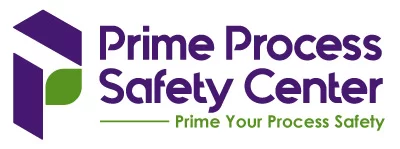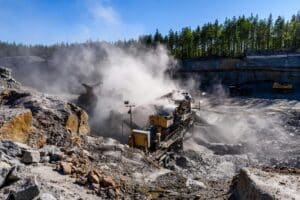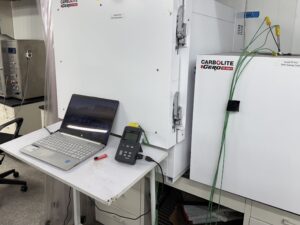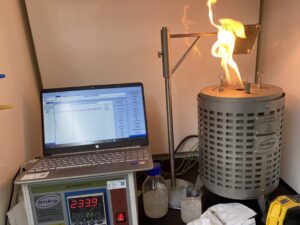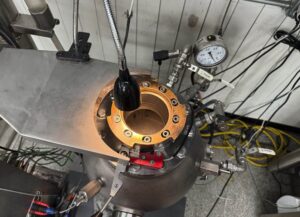We also offer
What is Vapor Pressure Test
Vapor pressure is the pressure exerted by a substance’s vapor molecules when it reaches equilibrium with its liquid or solid state at a given temperature. It represents the tendency of a substance to evaporate or transition to the vapor phase.
Vapor pressure increases with temperature — as temperature rises, more molecules gain enough kinetic energy to transition from the liquid or solid phase to the vapor phase, resulting in higher vapor pressure.
Vapor pressure data is crucial for understanding a substance’s volatility, evaporation rate, and behavior under different temperature conditions. It helps in:
-
Predicting evaporation rates and boiling points
-
Assessing inhalation exposure potential for occupational safety
-
Supporting product formulation, process design, and chemical behavior analysis
Vapor pressure data is widely used in industries such as pharmaceuticals, chemical engineering, environmental science, and materials research to ensure safe and efficient operations.
When to Perform Vapor Pressure Test
Vapor pressure tests are commonly conducted in industries handling volatile substances, such as chemicals, petroleum products, or gases, to ensure proper safety measures are in place.
The primary purpose of a vapor pressure test is to determine the pressure at which a substance transitions between liquid and vapor phases.
Applications include:
-
Chemical manufacturing and processing: Conducted during production, storage, or transportation of volatile materials to assess the risk of pressure buildup or potential leaks.
-
Refineries and storage terminals: Used to evaluate volatility and safety risks associated with petroleum products and gases, helping prevent explosions or fires.
-
Regulatory compliance: Many regulatory bodies require periodic vapor pressure testing to ensure adherence to safety standards and environmental regulations.
Regular testing also supports equipment integrity, safety management, and process reliability in facilities handling volatile or pressurized substances.
Why Choose Prime Process Safety Center
Prime Process Safety Center is a trusted leader in process safety testing, supported by highly experienced laboratory personnel. Our goal is to provide accurate, reliable, and defensible vapor pressure data that meets both industry and regulatory standards.
We understand the importance of high-quality data in process safety assessments and work diligently to deliver precise and consistent results.
-
Expertise: Our team is knowledgeable and experienced in performing vapor pressure tests for a wide range of substances and applications.
-
Advanced Equipment: We use state-of-the-art vapor pressure testing instruments to provide precise and sensitive measurements.
- Accreditation: As an ISO/IEC 17025:2017 accredited laboratory, we follow rigorous quality and competency requirements for every test we perform.
-
Quality Assurance: We follow strict testing protocols and quality control procedures to ensure every result is consistent, reproducible, and defensible.
Partner with Prime Process Safety Center for reliable vapor pressure testing services that support your safety, compliance, and process optimization goals.
FAQ
What is vapor pressure, and why is it important in safety?
Vapor pressure is the pressure exerted by a vapor in equilibrium with its liquid or solid state in a closed container at a given temperature. It's crucial in safety as it determines a substance's tendency to evaporate and form potentially hazardous vapors. Higher vapor pressure signifies a greater risk of vaporization and potential exposure to these vapors.
How does vapor pressure affect the storage and handling of chemicals?
Higher vapor pressure chemicals tend to evaporate more readily, increasing the risk of exposure to their vapors. Proper storage in well-ventilated areas, appropriate containers, and adherence to safety protocols help mitigate risks associated with volatile substances.
What safety precautions should be taken for substances with high vapor pressure?
For substances with high vapor pressure, proper ventilation in storage areas is critical to prevent the buildup of vapors. Personal protective equipment (PPE) such as respirators, gloves, and goggles should be worn when handling these substances. Additionally, storing such chemicals in well-sealed containers and following strict handling procedures can minimize risks.
How does temperature impact vapor pressure, and why is this important in safety considerations?
Vapor pressure increases with temperature. Higher temperatures can lead to increased evaporation rates and elevated vapor pressures, potentially resulting in higher concentrations of hazardous vapors. Understanding this relationship is crucial in managing temperature-sensitive substances and maintaining safe working environments.
What are the regulatory guidelines or standards related to vapor pressure in safety protocols?
Various regulatory bodies, such as the Occupational Safety and Health Administration (OSHA) in the United States, provide guidelines and standards for handling, storing, and transporting substances based on their vapor pressure. Safety data sheets (SDS) often contain information about a substance's vapor pressure and associated safety measures, helping organizations comply with regulations and ensure safe practices.

